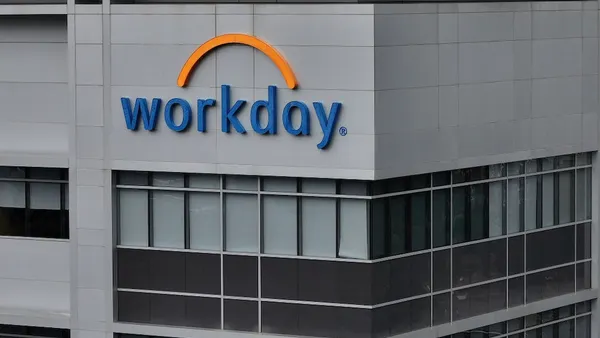In "Other Duties as Assigned," HR Dive's lead editor, Kate Tornone, weighs in on employment trends, compliance best practices and, of course, the situations that require you to go above and beyond your normal duties. Today: managing your own social media.
HR professionals have a lot to worry about when it comes to social media. From screening potential hires to investigating potential Family and Medical Leave Act abuse, the (relatively) new tech has both advantages and pitfalls of which HR needs to be aware — and your own social media is no exception.
It would be easy for me to suggest you keep all of your accounts private and stay away from divisive topics but that's not realistic today, a time when individuals are super connected and employers are expected to take a stand on social issues. Not only can a social media presence help your career, but it's increasingly likely that a lack of one could hinder your potential.
I reached out to Adam Calli, one of your more prolific peers on social media, because I think his online presence serves as a good example for today's HR pro (and not just because he likes to share HR Dive articles). He demonstrates that one can discuss industry trends and exhibit some personality — without going viral for the wrong reasons.
Keep current
For many professionals, including those in HR, social media can be a valuable way to stay current on industry news and trends, according to Calli, principal consultant at Arc Human Capital, LLC.
After all, HR is a heavily networked industry, and much of that connection and knowledge sharing happens online (we see you, #HRtribe).
With a few strategic follows — some thought leaders and other employers, suggests Calli — your Twitter and LinkedIn feeds can bring you the news of the day. "It's one of the things that I find most valuable about social media … the ability to use Twitter almost as an RSS feed," Calli said. "It helps me to make sure I'm not missing things," he continued; "And then of course if it's something I'm excited about I'll usually retweet it and add my own two cents."
Good overview of the issue with good tips for staff & companies alike. That said beware tipping the scales to far in either direction! A blend of generations pays off! #ADEA #HR https://t.co/BZH4paJHGn
— Adam Calli, MSM/SHRM-SCP (@HRNole1) September 29, 2019
Maintain your brand
Calli may approach social media in a slightly different way than those working in house, but "you don't have to be in business for yourself to worry about your brand," he said.
You may be a job seeker again someday, and establishing yourself as a thought leader is almost a must these days. Employers want to see someone who has something to add to a conversation, who engages in discussion about the topic of the day, Calli said; online engagement shows that you're plugged in, how you think and, perhaps most importantly, how you support what you think.
If you're completely absent from these discussions, those are hard skills to demonstrate. A lack of Twitter and Facebook accounts can be forgiven, but Calli said he'd struggle not to consider an absence from LinkedIn a strike against a candidate.
But it doesn't need to be all business. Calli's online presence is largely related to work but he lets his personality show, too, following — and sometimes tweeting at — a favorite sports team or Sesame Street character.
Hey @MeCookieMonster did you know that you get free cookies after a #blooddonation? Yummy ???????? pic.twitter.com/2dObmV0jga
— Adam Calli, MSM/SHRM-SCP (@HRNole1) July 2, 2019
Keep it clean
When sharing personal interests or commenting on the day's headlines, however, there are some limits. Many advise employees against following, friending or otherwise connecting with each other but Calli said that's not terribly practical. Instead, go ahead and connect, he said, but assume that your future boss is sitting in the audience for everything you broadcast.
I was initially surprised by Calli's relaxed attitude regarding friending employees, but it makes sense. You can make every account you have private, but things will still find a way out. Someone can, for example, simply screenshot something and send it to your boss. (Stranger things have happened.)
So instead, keep the bar high for yourself and remember your chosen profession. "If you're in HR, I would argue that you should be a little smarter," Calli said; remember, the internet is forever.
Think of it this way: If you wouldn't share it at work, don't share it online. "I wouldn't talk about my sex life at work," Calli said, so "I sure as heck wouldn't put that on social media."
















